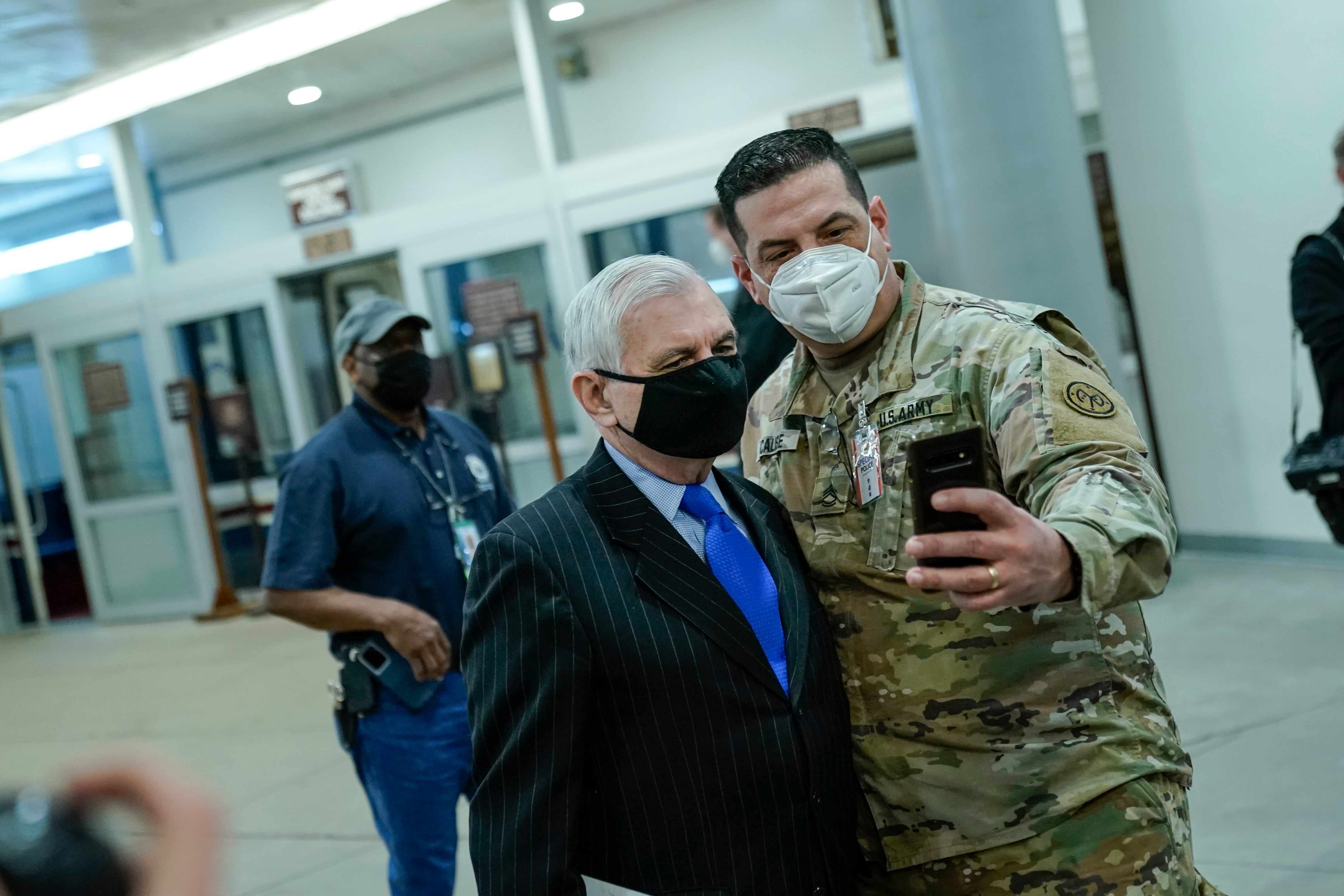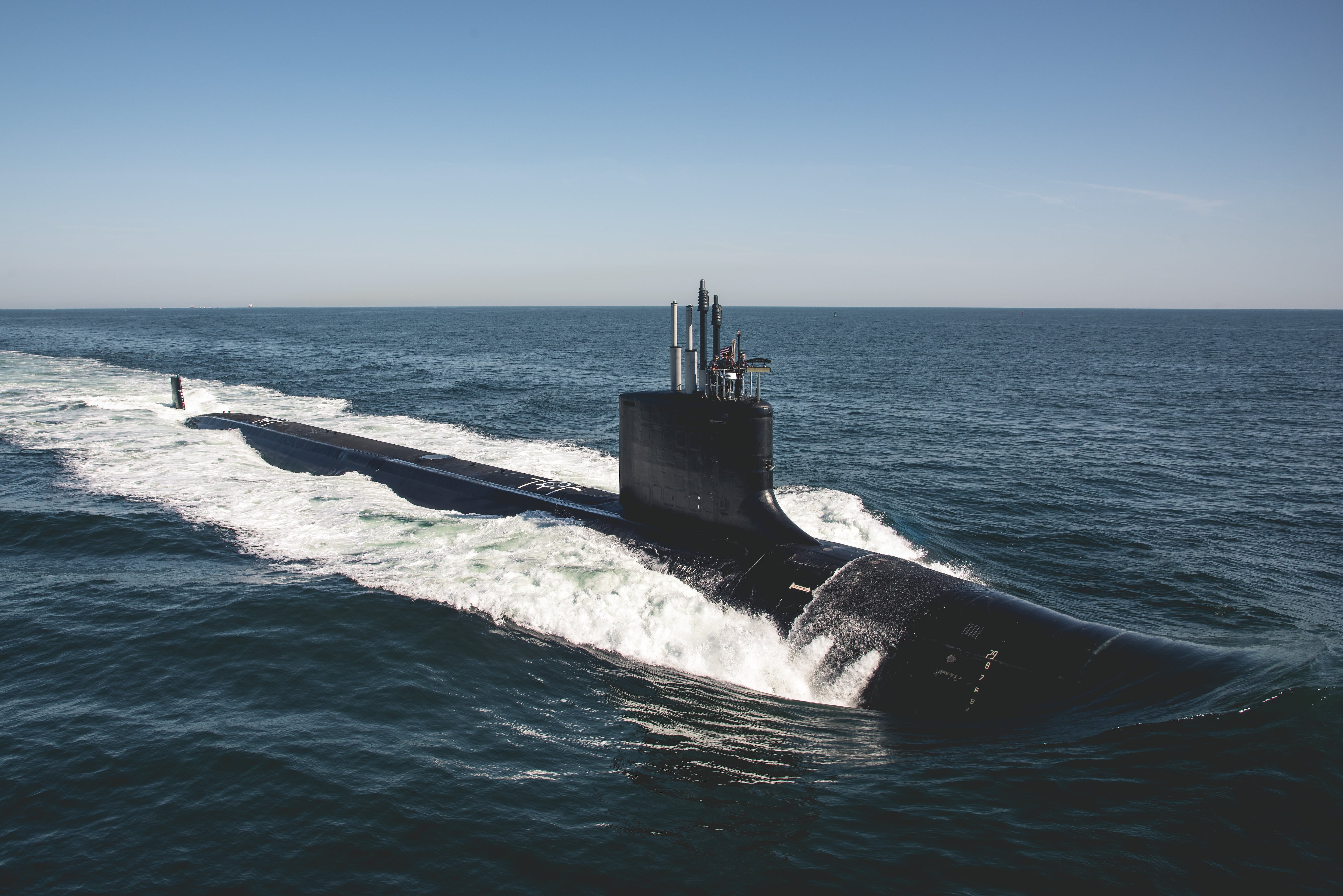WASHINGTON ― House Armed Services Committee Republicans have laid down a new marker in what’s expected to be a testy budget cycle, urging President Joe Biden to increase the defense budget by 3 to 5 percent, adjusted for inflation.
The eight lawmakers, led by HASC ranking member Mike Rogers, sought the increase in a letter to Biden obtained by Defense News, calling it a prudent investment to stay ahead of China and other evolving threats.
“As you prepare your administration’s fiscal year 2022 (FY22) budget for submission to Congress, we urge you to reject demands from many on the left to cut or freeze defense spending at current levels,” they wrote.
“The next four years are going to be a crucial turning point for our military and our nation. If we do not make the investments our military needs today, we will not be able to defend our nation or our allies in the future.”
The position is significant because Biden ― who is expected to offer a flat budget after years of growth under President Donald Trump ― is under pressure from progressives to slash defense spending in favor of domestic needs. Because a group of Democrats typically vote against defense spending and policy bills, Democratic leaders will likely need to bargain with Republicans to attract enough votes to pass those bills.
RELATED

Rogers, R-Ala., has said previously that he wants to see a 3 to 5 percent increase, which echoes calls from Senate Armed Services Committee Chairman Jim Inhofe, R-Okla., officials under the Trump administration and the recommendation of the bipartisan National Defense Strategy Commission. Rogers was joined in the letter by the seven ranking members of each HASC subcommittee.
What a 3 to 5 percent increase means exactly isn’t clear in the letter. If the request pertains to the Defense Department’s base budget, which was $636 billion for fiscal 2021, that likely amounts to an increase of anywhere between $32 billion (to reach $668 billion) and $45 billion (to reach $681 billion), said defense budget and aerospace expert Todd Harrison, of the Center for Strategic and International Studies.
At the time Trump administration was already planning on a $698 billion base DoD budget with no growth above inflation after moving $45 billion overseas contingency operation funding into the base budget. Assuming the Biden administration does the same, then a 3 to 5 percent increase growth above inflation would actually mean a base budget totaling $719 billion to $733 billion, Harrison said.
The conservative Heritage Foundation’s recommendations for the annual National Defense Authorization Act, released Wednesday, says 3 percent real growth means an FY22 national security budget of $778 billion, while a 5 percent real growth rate would equal $793 billion. (The NDAA includes Pentagon accounts and the Department of Energy’s nuclear weapons programs.)
Fiscal 2022 is the first year without the spending caps that have shaped Washington’s budget negotiations since the 2011 Budget Control Act. At the same time, the deadly COVID-19 pandemic has pounded the country’s economy while Washington has passed trillions in new spending to fight it―a trend that’s likely to pressure defense, the single largest category of discretionary spending.
The HASC Republicans argue the Budget Control Act “undermined military readiness, set back efforts to modernize the force, and gave our adversaries the time necessary to gain significant advantages that now jeopardize our military superiority.” Meanwhile, Beijing’s increased spending, transformed its military into a “modern fighting force capable of winning regional conflicts.
“If we do nothing, over the next decade, China will fully modernize its military, potentially bringing it into parity with our own,” they wrote.
RELATED

They urge Biden to “make key investments that will modernize the force and fill ongoing readiness gaps,” focused on cyber warfare, nuclear triad modernization, growing the Navy ― “and quickly incorporate the latest innovations and enhancements into warfighting capabilities, including air and sealift, space, missile defense, munitions, and electronic warfare.”
Republicans and Democrats, including HASC Chairman Adam Smith, D-Wash., and Senate Armed Services Committee Chairman Jack Reed, D-R.I., have also talked about reprioritizing emerging technologies and cyberwarfare.
“The security of the free world depends on a credible American military,” they wrote. “We look forward to working with you to ensure the men and women of our Armed Services have the resources and support they need to successfully carry out their missions now and for decades to come.
The request earned some immediate pushback from the Project on Government Oversight, which noted that defense leaders have said the country’s top national security priority is responding to COVID-19.
“Americans around the country are being asked to do more with less,” said POGO Director of the Center for Defense Information Mandy Smithberger. “And the DOD Inspector General found as recently as this week that DOD isn’t recovering money owed. DOD’s mission is to protect our country, and doing that is going to require them to curtail their appetite for endless taxpayer dollars.”
Joe Gould was the senior Pentagon reporter for Defense News, covering the intersection of national security policy, politics and the defense industry. He had previously served as Congress reporter.








